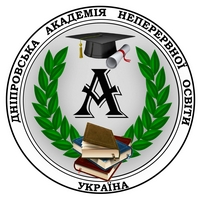SOCIO-CULTURAL CONTEXTS OF THE IMPLEMENTATION OF EDUCATIONAL PROGRAMS IN INSTITUTIONS OF HIGHER EDUCATION
Abstract
The author examines the structural changes in the higher education system, which are intensified by optimization processes and the search for an effective network, considering world experience and national specifics. This requires consideration of the internal and external logic of transformations of higher education institutions which does not happen automatically. The author explores the dominance of external logic in these transformations, which hides the danger of subordinating pedagogical rationality to economic and political rationality and warns against the commercialization of higher education, that hides the danger of its instrumentality, which is contrary to its civilizing purpose. The research shows that higher education institutions cannot be described and understood according to the model of traditional ontologies. The author draws attention to the normative approach to institutions of higher education in the situation of an uncertain future, which has a rather narrow range of validity due to the coexistence of ambivalent processes of expanding and densifying the educational space, as well as speeding up and slowing down time. The author researches the institutions of higher education of the late modern era, which, unlike the previous stages of their development, are no longer satisfied with their own internal cultural resources, but need for their full existence to be connected to wide networks of cultural and educational institutions, the presence of which strengthens the framework of the higher education system, and the absence of which indicates their weakness. It is emphasized that the structural changes taking place in modern higher educational institutions are accompanied by criticism both from the public and from within educational institutions. The author warns in this criticism a new understanding of the autonomy of educational institutions as a responsible and fair scientific community that generates the country’s intellectual potential is formed. Institutions of higher education, which have real and virtual opportunities for selfrepresentation in different spaces and different epistemological traditions, are offered to create and implement new educational programs considering socio-cultural contexts, which the author considers as the cultural and life-creating potential of the philosophy of continuous education of the individual.
References
2. Драйден Г. Революція в навчанні. Львів: Літопис, 2005. 542 с.
3. Зязюн І. А. Неперервна освіта як основа соціального поступу. Неперервна професійна освіта. Теорія і практика. № 1, 2001. С. 15–23.
4. Култаева М. Д. Локальное в лабиринтах всемирного общества: методологический аспект. Вопросы философии. № 9, 2011. С. 34–44.
5. Курбатов С. Темпоральна та просторова асиметрія місії сучасного університету та проблема її подолання. Вища освіта України. № 4, 2014. С. 81–84.
6. Робінсон К. Освіта проти таланту. Львів: Літопис, 2017. 256 с.
7. Робінсон К., Ароніка Л. Школа майбутнього. Революція у вашій школі, що назавжди змінить освіту. Львів: Літопис, 2016. 258 с.
8. Сальберг П. Фінські уроки 2.0: Чого може навчитися світ з освітніх змін у Фінляндії. Харків: Ранок, 2017. 240 с.
9. A Memorandum on Lifelong Learning. Commission staff working paper. Commission of the European Communities. 30.10.2000. SEC(2000) 1832. Brussels, 2000. 36 pp.
10. Baumgarten H.U. Frei, gleich und gebilden. Bildungstheorie in der Diskussion. // In: Bildungstheorie in der Diskussion /Ed. by Bärbel Frischmann (Hg). München: Verlag Karl Alber, 2012. pp. 46–61.
11. Debray R. Le Pouvoir intellectuel en France. Paris: Ramsay, 1986. 346 pp.
12. European Commission, EACEA, Eurydice. Education and Training in Europe 2020: Responses from the EU Member States. Luxembourg: Pablications Office of the European Union, 2013. 110 pp.
13. Fichte J.G. Reden an die deutsche Nation. Hamburg: Gröls Verlag, 2019. 204 pp.
14. Field J., Schmidt-Hertha B., Waxenegger A. Universities and engagement: International perspectives on higher education and lifelong learning. International Review of Education, Vol. 1, No. 63, February, 2017. pp. 123–128.
15. Freire P. Pedagogy of the oppressed. New York – London: Continuum, 2000. 181 pp.
16. Gonnet J. Les médias et la curiosité du monde. 1st ed. Paris: Presses universitaires de France, 2003. 141 pp.
17. Institute for Lifelong Learning. Bali manifesto, embracing inclusion: a roadmap to lifelong learning for all. Inclusive Lifelong Learning Conference. Bali, 2023. 5 pp.
18. Jaspers K. Die Idee der Universität. Berlin [etc.]: Springer-Verlag, 1980. 132 pp.
19. Jonas H. Das Prinzip Verantwortung: Versuch einer Ethik für die technologische Zivilisation. Frankfurt am Main: Suhrkamp, 2015. 425 pp.
20. Kerr C. International Learning and National Purposes in Higher Education. American Behavioral Scientist., 1991. Vol. 1, No. 35, pp. 17–42.
21. Liessmann K. P. Theorie der Unbildung die Irrtümer der Wissensgesellschaft. München; Berlin; Zürich: Piper, 2017. 174 pp.
22. McLaren P. Capitalists and conquerors: a critical pedagogy against empire. Lanham, MD: Rowman & Littlefield Publishers, 2005. 353 pp.
23. Ortoli S. Erzählende Zahlen. Philosophie Magazin, No. 5, Jul 2018. P. 18.
24. Postman N., Weingartner C. How to recognize a good school. Bloomington, Ind.: Phi Delta Kappa Educational Foundation, 1973. 41 pp.
25. Precht R. D. Anna, die Schule und der liebe Gott: Der Verrat des Bildungssystems an unseren Kindern. München: Goldmann, 2015. 350 pp.
26. Roche M. Was die deutschen Universitäten von den amerikanischen lernen können und was sie vermeiden sollten. Hamburg: Meiner Verlag, 2014. 297 pp.

 ISSN
ISSN  ISSN
ISSN 

